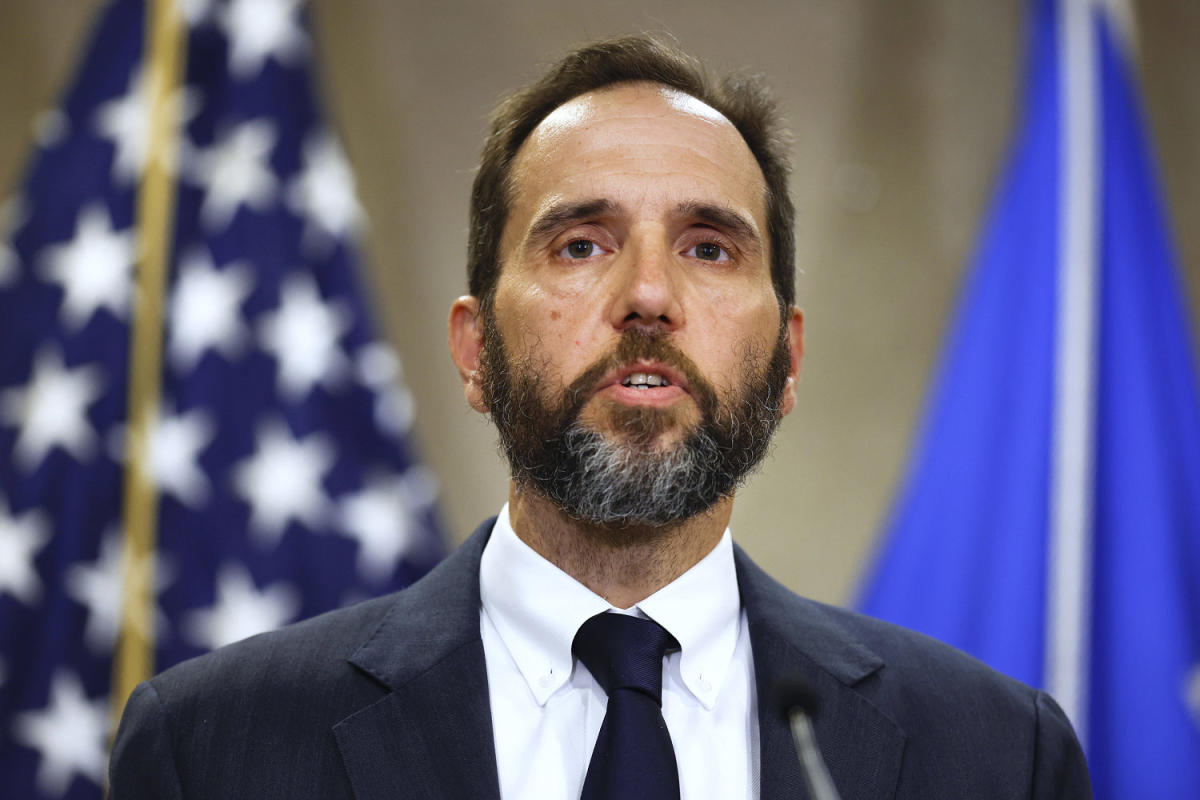The 66-page filing from Smith and his team laid out a series of arguments taking aim at Trump’s claim that a president is immune from criminal prosecution. Prosecutors argued that there are no presidential powers that would entitle Trump to immunity in this case and that “history likewise refutes” Trump’s arguments.
“The Framers never endorsed criminal immunity for a former President, and all Presidents from the Founding to the modern era have known that after leaving office they faced potential criminal liability for official acts,” Smith said in the brief, referring to President Richard Nixon’s Watergate scandal.
He also said Trump “suggests that unless a criminal statute expressly names the President, the statute does not apply.”
“That radical suggestion, which would free the President from virtually all criminal law — even crimes such as bribery, murder, treason, and sedition — is unfounded,” the filing said.
Later, the filing said that “the express text of nearly all federal criminal laws covers all persons, including the President.”
Attorney General Merrick Garland appointed Smith in 2022 to investigate Trump’s alleged role in working to overturn the 2020 presidential election results, as well as allegations that he mishandled classified documents.
The Supreme Court is set to hear oral arguments about Trump’s immunity argument on April 25.
Trump’s lawyers did not immediately respond to a request for comment on the filing, which was signed by Smith and three members of his special counsel team.
Trump’s team had made the case for “absolute immunity,” arguing that ruling that the president is subject to criminal prosecution would “incapacitate every future president.” They wrote in a filing to the Supreme Court last month that the presidency “cannot retain its vital independence” if a president can face criminal prosecution after having left office.
U.S. District Judge Tanya Chutkan, who is overseeing the election interference case, rejected Trump’s argument in December, saying a president does not “a lifelong ‘get-out-of-jail-free’ pass.” A federal appeals court also rejected Trump’s argument in February, finding that “former President Trump has become citizen Trump, with all of the defenses of any other criminal defendant,” and that “any executive immunity that may have protected him while he served as President no longer protects him against this prosecution.”
In Monday’s briefing, Smith said, “No presidential power at issue in this case entitles the President to claim immunity from the general federal criminal prohibitions supporting the charges: fraud against the United States, obstruction of official proceedings, and denial of the right to vote.”
“The President’s constitutional duty to take care that the laws be faithfully executed does not entail a general right to violate them,” Smith added.
Trump’s lawyers argued last month that the “long history” of not prosecuting former presidents “demonstrates that the newly discovered alleged power to do so does not exist.”
Smith took issue with that argument Monday, writing that the prosecution of Trump “is a historical first not because of any assumption about immunity but instead because of the singular gravity of the alleged conduct.”
“The severity, range, and democracy-damaging nature of the alleged crimes are unique in American history,” the filing said.
The Supreme Court’s earlier decision to hear Trump’s case was a win for Trump, given the further delays it created in his Washington, D.C., case.
Later in his filing, Smith accounted for the possibility that the Supreme Court may decide that presidents have a certain level of immunity.
“Even assuming that a former President is entitled to some immunity for official acts, that immunity should not be held to bar this prosecution,” he wrote. “First, a President’s alleged criminal scheme to overturn an election and thwart the peaceful transfer of power to his lawfully elected successor is the paradigmatic example of conduct that should not be immunized, even if other conduct should be.”
Trump’s team has tried to delay the trial as long as possible, and it has paid off. Trump was originally supposed to go to trial in the federal election interference case at the beginning of last month, a schedule that would have meant a jury could have been reaching a verdict in the coming weeks.
He is now scheduled to go on trial in a separate case, in New York, next week on allegations of falsified business statements related to hush money payments.
Trump has pleaded not guilty to all criminal charges.
This article was originally published on NBCNews.com
